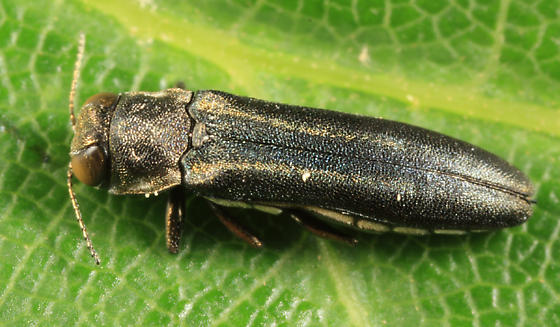
As if Mid-westerners didn’t have enough pests to deal with, we are now experiencing Oak decline due to the lovely Two- Lined Chestnut Borer (Agrilus bilineatus). 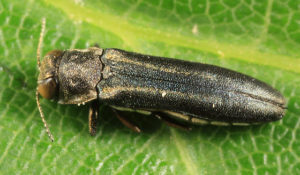
What is a Two-Lined Chestnut Borer?
The Two-Lined Chestnut Borer is a flat head borer that affects Chestnut trees and Oak trees alike here in the Midwest. When not properly managed, these Borers can cause significant damage and even death in Oak and Chestnut trees.
Life Cycle
Adults appear in early June in the Midwest. The females will lay their eggs in clusters of 10 eggs starting late June thru early July. Once eggs hatch, the larvae will bore into the trunk of the tree to the Phloem and start creating winding tunnels.
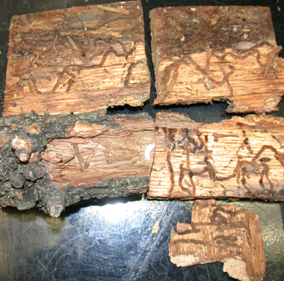
Two-lined chestnut borer galleries
The larvae will proceed downward from the top of the tree where they will exit thru D shaped holes as adults.
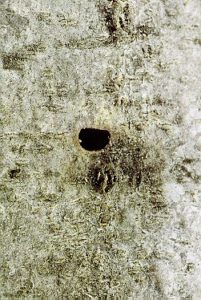
D-shaped exit hole of the twolined chestnut borer as observed on the bark surface
Results of Two-Lined Chestnut Borer
Once the Borer has affected a tree, you will notice that the branches where they have tunneled thru will die and break off. This is not only unsightly but hazardous as well. Once your trees have been affected, the resulting leaves will be small and discolored, eventually turning red- brown. Other leaves on unaffected branches will remain green.
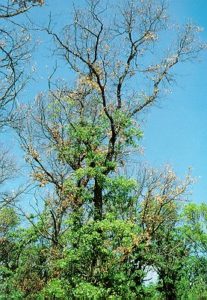
Canopy loss from Two Lined Chestnut Borer
USDAFS
What Can You Do?
If you have healthy Oaks, you can help protect them with Soil Injected or tree injected applications that specifically target Boring pests. If your trees have already been affected, you would want to have a Certified Arborist examine the trees to see if they can still be treated. If treatment is not recommended, the trees should be removed to avoid hazardous limb drop. If you live locally to McHenry County, IL, you can contact us directly by filling out the following form:
Subscribe to our newsletter to stay on top of tree care issues here:
Information taken from following sources: Rainbow Tree Care Scientific; University of Illinois Plant Clinic; USDA Forestry Services; ‘Insects That Feed On Trees & Shrubs’- Johnson, Warren T. published 1991 2nd edition; images sourced from bugguide.net; usdafs; uwext


